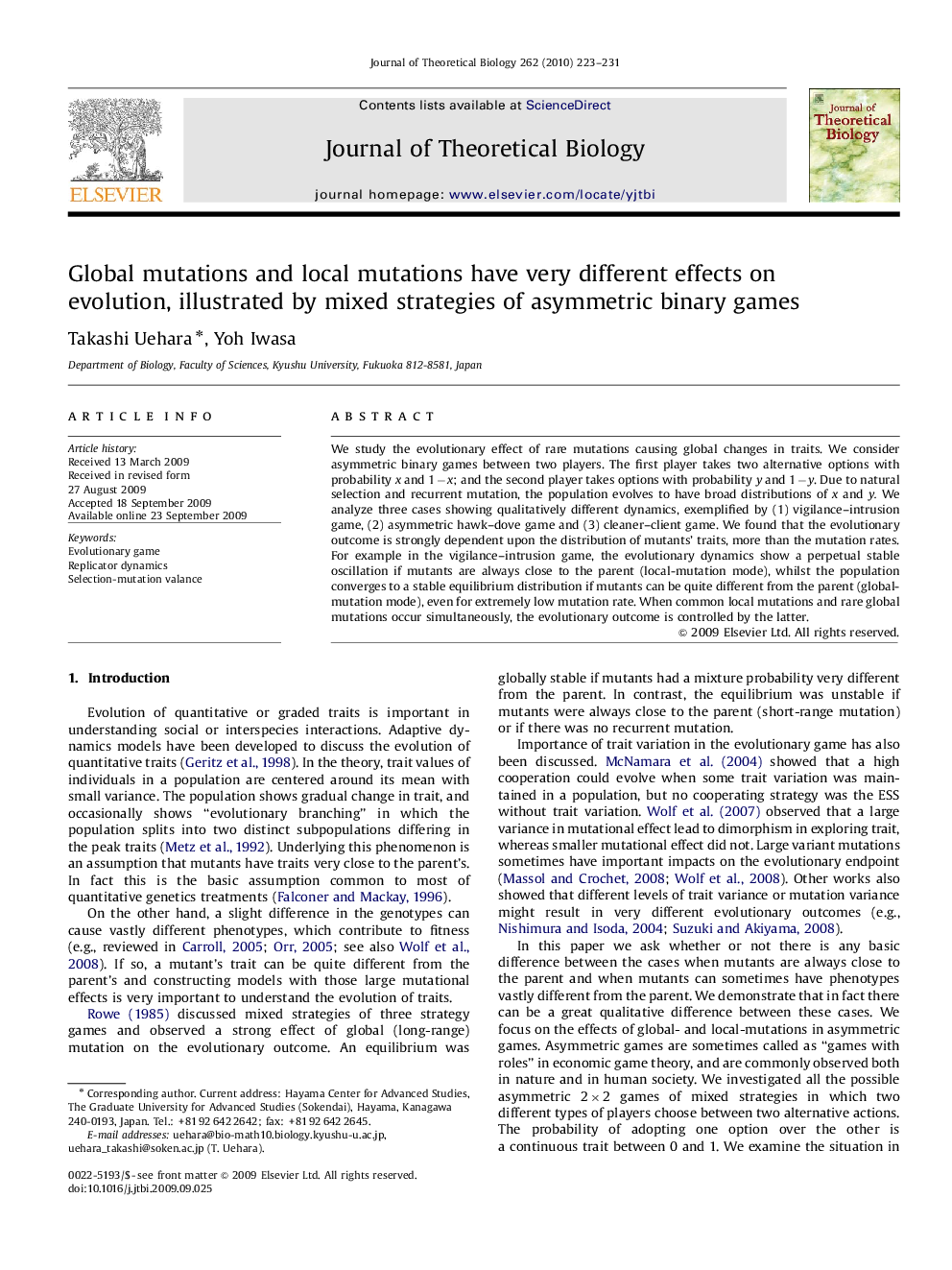| Article ID | Journal | Published Year | Pages | File Type |
|---|---|---|---|---|
| 4497856 | Journal of Theoretical Biology | 2010 | 9 Pages |
Abstract
We study the evolutionary effect of rare mutations causing global changes in traits. We consider asymmetric binary games between two players. The first player takes two alternative options with probability x and 1âx; and the second player takes options with probability y and 1ây. Due to natural selection and recurrent mutation, the population evolves to have broad distributions of x and y. We analyze three cases showing qualitatively different dynamics, exemplified by (1) vigilance-intrusion game, (2) asymmetric hawk-dove game and (3) cleaner-client game. We found that the evolutionary outcome is strongly dependent upon the distribution of mutants' traits, more than the mutation rates. For example in the vigilance-intrusion game, the evolutionary dynamics show a perpetual stable oscillation if mutants are always close to the parent (local-mutation mode), whilst the population converges to a stable equilibrium distribution if mutants can be quite different from the parent (global-mutation mode), even for extremely low mutation rate. When common local mutations and rare global mutations occur simultaneously, the evolutionary outcome is controlled by the latter.
Keywords
Related Topics
Life Sciences
Agricultural and Biological Sciences
Agricultural and Biological Sciences (General)
Authors
Takashi Uehara, Yoh Iwasa,
